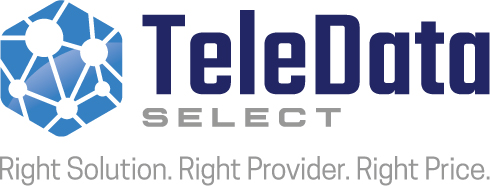There are others, but the most common internet service options available to the average consumer today are cable, DSL and fiber optic. While it’s true that each is capable of providing you with high-speed capabilities, these services are very distinct. Understanding each of their capabilities compared to your needs should be the determining factor in which type of internet access you choose.
DSL:
A Digital Subscriber Line or DSL connection, shares the existing copper wire of your phone line to deliver high speed internet access. Most DSL technologies use asymmetrical data transfer which means that consumers download speeds will be much faster than their upload speeds. While this isn’t an issue for typical web browsing, doing any sort of data transfer that requires substantial upload bandwidth (such as Cloud Computing, offsite backups or video conferencing) will be much slower than fiber or cable. Another critical factor that will impact your decision to go with DSL is that the distance between your home or office and the provider’s central office has to be less than a mile. The further you are from the main line, the weaker the signal, and the slower the connection. If you are in doubt whether a DSL plan you are considering is enough for upload intensive applications, we recommend looking for upload speeds of at least 1mbps.
factor that will impact your decision to go with DSL is that the distance between your home or office and the provider’s central office has to be less than a mile. The further you are from the main line, the weaker the signal, and the slower the connection. If you are in doubt whether a DSL plan you are considering is enough for upload intensive applications, we recommend looking for upload speeds of at least 1mbps.
As a rule, typical DSL is not as fast as your other options but depending on your usage, it could suit your needs at a lower price than cable or fiber.
Cable:
For business customers, cable internet is often the best internet solution due to its wide  availability and speed compared to DSL. Cable internet service shares the coaxial cable that also provides TV service. In contrast to DSL, the quality of a cable connection does not depend on distance. Unlike DSL, however, your neighbors will be sharing the cable’s overall bandwidth. So depending on how many users are sharing the cable, peak time usage can result in a slower internet experience. The faster speeds of cable are reflected in the price; you should expect to pay more for cable service compared to DSL.
availability and speed compared to DSL. Cable internet service shares the coaxial cable that also provides TV service. In contrast to DSL, the quality of a cable connection does not depend on distance. Unlike DSL, however, your neighbors will be sharing the cable’s overall bandwidth. So depending on how many users are sharing the cable, peak time usage can result in a slower internet experience. The faster speeds of cable are reflected in the price; you should expect to pay more for cable service compared to DSL.
Fiber:
Provided by companies such as AT&T, Qwest and Verizon, fiber optic offers many advantages over conventional copper and cable services. It is able to transmit data much faster over greater distances. Because the cable is smaller in diameter, weighs less and is stronger, it makes an ideal alternative for a wide variety of cabling solutions. Since the conductor is glass and cannot generate electricity, fiber is immune to all sorts of  interference. This means that it can come in direct contact with high-voltage electrical equipment, power lines and lightning, all while still putting out a superior performance. Fiber optic service is the most expensive of the three options although it is becoming competitive with cable as the technology matures and fiber service becomes more available. That said, fiber is still only available in a few markets, so there is no guarantee that you will be able to find it.
interference. This means that it can come in direct contact with high-voltage electrical equipment, power lines and lightning, all while still putting out a superior performance. Fiber optic service is the most expensive of the three options although it is becoming competitive with cable as the technology matures and fiber service becomes more available. That said, fiber is still only available in a few markets, so there is no guarantee that you will be able to find it.
Summary:
For many businesses, simply increasing your current bandwidth can fix day-to-day slow-down issues. But for some, your needs may have exceeded the platform’s capabilities. In that case, an investment in a more robust solution may be required. Assuming all are available, choosing between cable, DSL and fiber depends on your needs and budget. If you have limited bandwidth requirements, DSL is probably the best option. This allows you to use the net at quality speeds without breaking the bank for it. The growing availability of Fiber is providing the fastest possible speeds to a wider audience then ever before. Cable is a tried and true solution providing super-fast connections at reasonable prices.
Teledata Select offers a whole range of services that will help you meet your business goals. Starting with a complimentary review of your current telecommunication bills to identify errors and find opportunities for savings, better service and more functionality. We also offer project management for new service implementation and infrastructure installs, including fiber and low voltage cabling. Call us at 404-257-1502 to discuss your current Telecom Service Solution and what you would like to get out of it. Or send us a note via This Link to start a no obligation discussion of your specific business technology needs.
 Don Miller is a PMP certified Project Manager located in Greenville, SC. He has come to Teledata Select via Seattle, New York and Washington DC. His experience running small to multi-million dollar projects in the Banking, Software, Telecommunications and Insurance Industries across the US has given him a wide range of business experience.
Don Miller is a PMP certified Project Manager located in Greenville, SC. He has come to Teledata Select via Seattle, New York and Washington DC. His experience running small to multi-million dollar projects in the Banking, Software, Telecommunications and Insurance Industries across the US has given him a wide range of business experience.




0 Comments